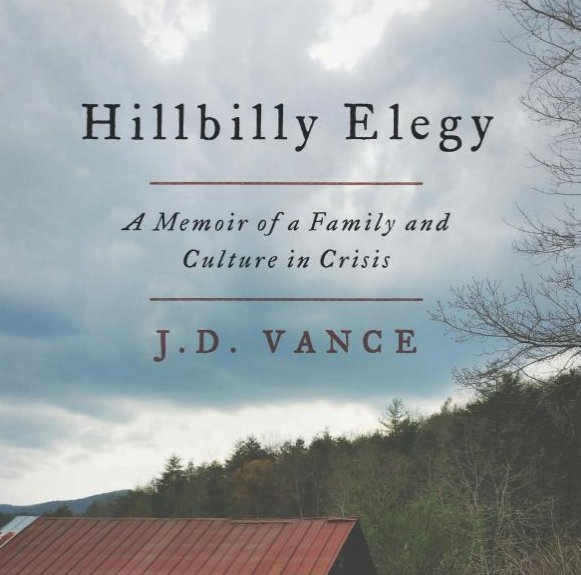J. D. Vance, Adverse Childhood Experiences (ACE), and the Tall Poppy Syndrome.

People see what they want to see and what people want to see never has anything to do with the truth. Roberto Bolaño
Equality refers to treating everyone equally and providing the same resources or opportunities to all individuals, regardless of their starting point. This approach assumes that everyone has the same needs and experiences, which often overlooks systemic disparities and individual circumstances. It ignores existing disparities and treats all individuals as if they start from the same place.
Equity, on the other hand, emphasizes fairness and justice by recognizing that individuals have different needs and face different barriers. It involves allocating resources and opportunities based on these unique circumstances to ensure that everyone has a fair chance to succeed. It recognizes and addresses systemic inequalities and barriers that affect different groups.
Equity refers to the fair treatment, access, and opportunity for all individuals, recognizing that different people have different needs and starting points. Unlike equality, which treats everyone equally, equity involves adjusting resources and opportunities to account for these differences to achieve fair outcomes.
Australia is a very egalitarian society and I devoted a chapter to the country in my book (see The Tall Poppy Syndrome - The Joy of Cutting Others Down). One of their mechanisms for maintaining equity is:
Fair go is a sacred commitment to equal opportunities for all and is fundamental to human rights. The right to fair go is the most important value for 91 percent of Australians, including the right to welfare, housing, and Indigenous reconciliation to make the country fairer.
Although fair go remains an important value, recent polls show 45 percent of Australians do not think everyone receives it. Australia has had over twenty-five years of economic growth without a recession, causing the average home price in Sydney to soar to AUD$1.1 million. Does every Australian have a fair go at affording prices like these? Forty-five percent of them would say no.
The Scandinavian or Nordic countries are also known for their equity and I also spent time detailing the Law of Jante in my book. The Law of Jante (Janteloven in Danish/Norwegian, Jantelagen in Swedish) originated from the 1933 novel "A Fugitive Crosses His Tracks" by Danish-Norwegian author Aksel Sandemose. In the novel, Sandemose portrayed a fictional small Danish town called Jante, which he modeled after his hometown of Nykøbing Mors. The Law of Jante consists of ten rules that emphasize humility and discourage individual success and ambition. The ten rules are:
- You're not to think you are anything special.
- You're not to think you are as good as we are.
- You're not to think you are smarter than we are.
- You're not to convince yourself that you are better than we are.
- You're not to think you know more than we do.
- You're not to think you are more important than we are.
- You're not to think you are good at anything.
- You're not to laugh at us.
- You're not to think anyone cares about you.
- You're not to think you can teach us anything.
While these "laws" originated in fiction, they evolved into a colloquial term describing a condescending attitude towards individuality and success in Nordic countries. The concept became deeply ingrained in Scandinavian culture, shaping social norms and values emphasizing humility, equity, and collectivism over individual achievement.
It's important to note that while the Law of Jante is still relevant in Scandinavian society today, its influence and interpretation vary. Some view it as a positive force promoting equity and social harmony, while others see it as potentially stifling individual ambition and creativity. The concept remains a topic of discussion and debate in Scandinavian countries, reflecting on how it shapes their society and culture.
America has a unique way of keeping one segment of our society from achieving equity - Adverse Childhood Experiences (ACE) - let alone Tall Poppydom. These experiences are traumatic events that occur during childhood, typically before the age of 18. They can have long-lasting negative effects on a person's health, behavior, and overall well-being throughout their lifetime. The original ACE study, conducted by the CDC and Kaiser Permanente from 1995 to 1997, identified 10 types of ACEs:
- Emotional abuse
- Physical abuse
- Sexual abuse
- Emotional neglect
- Physical neglect
- Parental separation or divorce
- Household substance abuse
- Household mental illness
- Domestic violence
- Incarcerated household member
Since the original study, the concept of ACEs has expanded to include additional experiences that can negatively impact a child's development. The current understanding of ACEs now encompasses a broader range of adverse experiences, including:
- Witnessing community violence
- Experiencing racism or discrimination
- Living in under-resourced or racially segregated neighborhoods
- Frequently moving to new homes or areas
- Food insecurity
- Death of a family member
- Economic hardship
- Unfair treatment based on race or ethnicity
It's important to note that there isn't a fixed number of ACEs now, as different studies and organizations may include additional factors. The expansion of ACEs aims to capture more diverse population data, particularly from children of color and those living in poverty. The ACE questionnaire, commonly used to assess ACEs, still typically includes the original 10 items. However, researchers and healthcare professionals recognize that other traumatic experiences can also have significant impacts on a child's development and future health outcomes.
Understanding and addressing ACEs has become increasingly important in public health, education, and social services, as early intervention and prevention strategies can help mitigate the long-term negative effects of these experiences.
Many studies are confirming and correlating outcomes with ACE scores. Generally, the higher the scores the higher the negative social consequences. Compared to an ACE score of zero, four adverse childhood experiences are associated with a seven-fold increase in alcoholism, a doubling of the risk of being diagnosed with cancer, and a four-fold increase in emphysema. An ACE score above six is associated with a 30-fold increase in attempted suicide.
J.D. Vance. I purchased his memoir in 2017, wrote the following review, and posted it on Amazon and my website douggarland.com.
A Review of Hillbilly Elegy

Hillbilly Elegy is a case study of adverse childhood experiences (ACE)
There have been thousands of reviews, so why another book review? Perhaps, I can add a fresh point of view. This book is a contemporary version of Horatio Alger’s late 19th century books which depicted underprivileged boys’ journeys to respectability and even riches, an early description of the American dream. Americans have traditionally enjoyed this underdog’s journey This is not a modern version of the Hatfield versus McCoy feud which is associated with the same place and people.
What is new is the recognition of adverse childhood experiences (ACEs)?
These are forms of physical and mental abuse, neglect, and household dysfunction. Specific entities include physical, emotional, and sexual abuse; physical and emotional neglect; household dysfunction such as mental illness, incarcerated relative, mother treated violently, substance abuse and divorce as well as racism, bullying, and community violence. Each is given one point and, when the score reaches four or more, problems begin — drugs, rape, crime, depression, suicide, and medical problems such as lung disease and hepatitis. This is found in all areas of our society, not just low-income hillbillies from Appalachia.
Unfortunately, the protagonist and his ilk were labeled “deplorable” which added a political dimension to the book and a negative one at that. The only thing deplorable is the situation our 4 to 18-year-olds, of all genders, are subjected to, including our author, in all parts of America and especially in our rust belt states.
As you read Hillbilly Elegy in this light, count the author’s ACEs. You decide his score and the obstacles the author had to overcome. His high score made the odds of success seem insurmountable. How or what altered his course? Did he have an aha moment? Did the military make a man of him?
The author moved in with a new family when his mother remarried. The new situation created a new dynamic - the crabs in a bucket effect. This thinking by the group of fellow losers is that “if I cannot have it, neither can you.” As the crabs crawl up the bucket to escape the toxic environment, the others try to pull you back. Their low self-esteem generates bad envy and they try to prevent the author’s good intentions of freedom from their negativity. Moving out of that household and into his grandmother’s house was his salvation.
The author went on to become an Ivy League trained attorney and penned this book, a tall poppy. Now he is the recipient of reverse abuse —- people trying to cut him down because of his success (see negative reviews). This is known as the Tall Poppy Syndrome. Some want to cut him down to size negating his newfound stature.
Hillbilly Elegy is about ACEs and the forsaken’s ability to overcome them as well as other obstacles. It is about hope and dreams bettering despair and isolation. The Algerian downtrodden and circumstances were markedly different from today’s and the journey to the American Dream is more difficult and complex. What a journey!!!! What a book!!!
Although I do not know Senator Vance's ACE score I commend his climb out of the briar patch. What concerns me is the multitude who are in this situation through no fault of their own and are prevented from becoming TPs. They are everywhere and anywhere across all genders and races but concentrated in areas like the Rust Belt, ghettos in large cities, and small farm communities across America. They deserve fair go, a potential Algerian ending, and Tall Poppydom.
Tall Poppy Syndrome Newsletter
Join the newsletter to receive the latest updates in your inbox.



